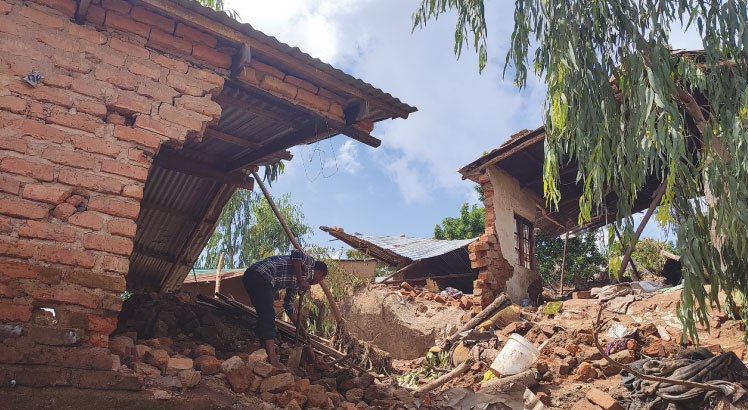Low carbon path key to development
 Climate change poses a severe threat to the development plans and priorities of African countries but low carbon path could be key to this challenge, a UN expert has said.
Climate change poses a severe threat to the development plans and priorities of African countries but low carbon path could be key to this challenge, a UN expert has said.
Efforts in poverty reduction, enhanced access to water and modern energy services, infrastructure development and improved agricultural productivity to meet the needs of a growing population are likely to be affected by a changing climate.
Without adaptation to, and mitigation of climate change impacts, Africa’s overall development as well as its current positive economic progress are likely to be stalled, says Josue Dione, director of Food Security and Sustainable Development at the UN.
The fourth assessment report of the Intergovernmental Panel on Climate Change (IPCC) projects future warming across the continent in the range of 0.2 degrees Celsius (low scenario) to 0.5 degrees Celsius (high scenario) per decade up to the year 2100.
This suggests an increase in climate-related ‘shocks’ in the region including droughts, storms, flooding, extreme temperatures and rising sea levels.
The last Special Report on Extreme Events of the IPCC also highlighted the importance of addressing both exposure and vulnerability of several key sectors such as agriculture and food security, water supply, energy security, regional security and migration, healthcare and biodiversity to extreme events in Africa.
“The high vulnerability of the continent to the impacts of climate change is further exacerbated by the low adaptive capacity of African countries. Many of them cannot effectively respond to these challenges due to factors such as weak institutions, widespread poverty, inadequate technologies and social infrastructure, conflict and limited human and financial capacities,†Dione told The Nation ahead of the upcoming Second Climate Change and Development in Africa (CCDA II) in October.
Dione says African countries, therefore, need to chart a new development pathway that promotes climate resilience and low carbon emission development.
“Transforming the challenges posed by climate change into opportunities requires active engagement of all stakeholders in Africa’s development agenda including policy makers, academicians and other stakeholders,†added Dione.
He says, for example, new development paradigms such as the ‘Green Economy’ also known as ‘Climate-Resilient Low Carbon Development’ need to be urgently discussed and addressed by all stakeholders in order to avoid discrepancies and ensure effective ownership and engagement of all actors.
“Indeed, sectoral policies and strategies need to mainstream climate change at the local, national and regional levels, while also taking into account global policies on finance and technology transfer,†Dione urges.
This year, the theme for the conference is ‘Advancing Knowledge, Policy and Practice in Climate Change and Development’. The conference will emphasise and advocate for urgency and the need to pursue climate resilient and climate-proof development in the continent through better-informed policies and practices.
Â





